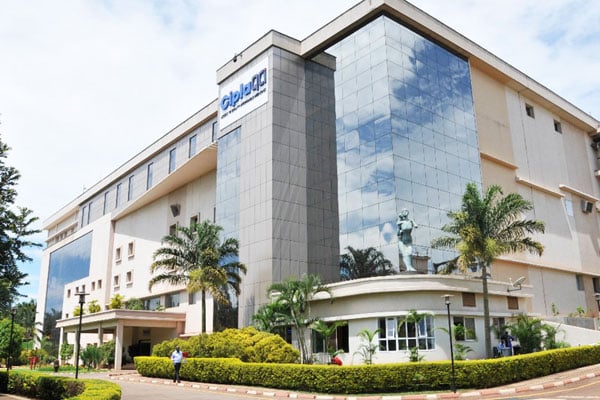Cipla’s long term debt due to Zambia reduces to Shs5.4b

In 2020 Cipla suspended drug exports to Zambia over unpaid invoices. Photo / File
What you need to know:
- Cipla’s failure to collect about Shs43b from the Zambian government for unpaid drug supplies had impacted the company’s bottom line, posting losses for about two years since listing on the Uganda Securities Exchange in 2018
Cipla Quality Chemical has said it has substantially reduced its long term debt due to the government of Zambia to just Shs5.4b.
In details contained in the company’s financial results, Cipla indicated it had significantly reversed impairment allowances on trade receivables due to another part recovery of the Shs43b ($12m) that had remained outstanding on its books for years.
Cipla has been receiving traches of payments from the government of Zambia since 2022 with the latest being Shs14.7b, which the company said now brings the outstanding debt to just Shs5.4b.
Last year, Cipla indicated it had received Shs23b from the government of Zambia towards payment of the long term debt, which had put the company in a complicated financial position due to large provisioning.
In 2020, Cipla applied more pressure on Zambia, suspending drug supplies to the country over unpaid invoices.
However, the repayment last year saw the company register a strong revenue position, with profits rising from Shs5.5b to Shs24b.
During the period ended March, Cipla indicated that whereas the Shs14.7b recovery had lifted up its performance, an increase in general and administrative expenses resulting from inflationary pressures had impacted its financial position with revenues falling by about Shs45.9b.
The reduction was mainly due to a drop in export sales and manufacturing contracts, which during the period declined by about 38 percent, thus forcing total revenues to contract to Shs221.4b from Shs267.4b in the same period last year.
During the period, Cipla noted, profit after tax had dropped to Shs19b from Shs24.1b, prompting the company to propose a total dividend payout of Shs9.12b or Shs2 per share, a decline from the Shs2.5 that was paid in the same period last year.
The payout would, however, be an increase from Shs7.3b that was paid out in the period ended March 2022.
Cipla posted its first profits in the period ended March 2020 after it went for about two years without returning a profit since listing on the stock exchange in 2018.
The company has since 2020 sustained its profitable position with increased export sales, retail drugs marketing and improved debt recovery measures, among others.
During the period ended March, Cipla indicated that retained earnings had increased to Shs114.3b from Shs104.5b, while total assets declined slightly to Shs213.46b from Shs246.68b.
Total equity and liabilities declined to Shs213.46b from Shs246.68b while net cash flow cash generated from operating activities more than doubled from Shs15.9b to Shs41.9b, mainly due to profitable operations and part collection of debt from the government of Zambia.
Gains from foreign exchange
Cipla indicated it had invested Shs10.6b up from Shs8b in boosting storage capacity of raw materials and finished goods as well as maintaining factory capacity.
Gains from foreign exchange grew to Shs3.2b compared to a loss of Shs0.1b in the same period last year due to stability of the shilling during the period.




